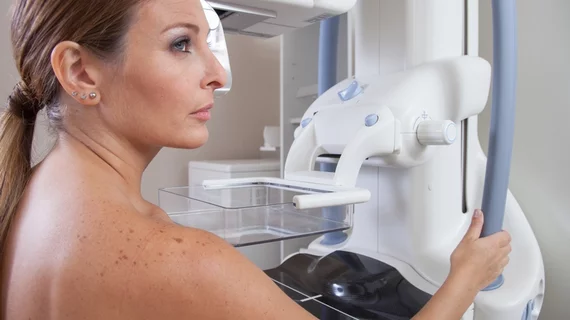What do providers think about Canada’s updated breast cancer screening guidelines?
In December 2018, the Canadian Task Force on Preventive Health Care issued updated breast cancer screening guidelines that recommended women aged 50 to 74 seek screening every two or three years and women aged 40 to 49 not undergo screening. Opinions vary on the effectiveness of these guidelines, as one can see by reading two recent columns published by the Toronto Star.
Physician Lisa Del Giudice, MD, MSc, of Cancer Care Ontario wrote that the task force did the right thing. Jean Seely, MDCM, a breast radiologist at The Ottawa Hospital, wrote that updating the guidelines was a mistake.
“The updated guidelines follow a trend of engaging patients in shared decision making,” Del Giudice wrote, noting that “years of rigorous studies” show that women under the age of 50 see minimal benefits from breast cancer screening.
“Unintended risks are also seen in these studies,” she wrote, explaining that false-positive results can impact a patient both physically and emotionally. Research also shows that women would choose not to undergo breast cancer screening via mammography if they were aware of the associated risks, she added.
Del Giudice concluded by emphasizing the importance of shared decision-making and hoping that, as time progresses, overdiagnosis and overtreatment can be significantly reduced.
“In practice, I still recommend screening mammograms for most women over age 50 and even for some women under 50,” she added.
Seely, meanwhile, wrote that patients should “wade through the recommendations with caution.”
“Incredibly, these new guidelines were issued without the involvement of an expert in breast diagnosis or treatment,” Seely wrote. “Instead, the panel involved family doctors, nurses, a chiropractor, an occupational therapist and a nephrologist. Why? The Task force claimed that including an expert in breast cancer diagnosis would bias the guideline development. The Task Force implied that because radiologists earn a living by diagnosing breast cancer they place financial gain above the welfare of patients.”
She added that she found this line of thinking—that healthcare providers are more interested in money than their patients—to be “particularly galling.”
Seely concluded by suggesting the federal health minister should reject these guidelines, allowing a new task force—one that includes an expert on breast cancer diagnosis—to provide updated recommendations.
Click below to read the two columns in their entirety:
Was Canada right to change its breast screening guidelines? Yes
Was Canada right to change its breast screening guidelines? No

